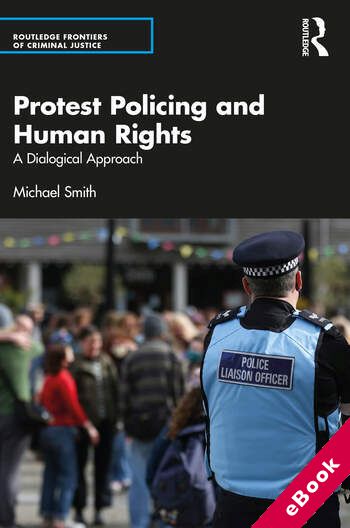
The device(s) you use to access the eBook content must be authorized with an Adobe ID before you download the product otherwise it will fail to register correctly.
For further information see https://www.wildy.com/ebook-formats
Once the order is confirmed an automated e-mail will be sent to you to allow you to download the eBook.
All eBooks are supplied firm sale and cannot be returned. If you believe there is a fault with your eBook then contact us on ebooks@wildy.com and we will help in resolving the issue. This does not affect your statutory rights.
This book examines protest policing and the toolbox of options available to police commanders in response. The right to peacefully protest is intrinsic to democracy and embedded in British history and tradition. The police are responsible for managing public order and facilitating peaceful protest, and this has not been without criticism. On occasions the police have found themselves in opposition to protest groups and there have been incidents of disorder as a result. In response, the development of Police Liaison Teams in the UK has presented the police with a gateway for dialogue between themselves and those involved in protest.
Drawing on two contrasting case studies, the policing of the badger cull in South-West England and an English Defence League (EDL) march in Liverpool, this book explores the experiences of police commanders, police liaison officers, protesters, counterdemonstrators, members of local businesses and other interested parties. It explores how a dialogical approach with all those engaged in or affected by a protest has assisted the police in balancing human rights and reducing conflict for all.
An accessible and compelling read, this book will appeal to students, scholars and practitioners of policing, politics, criminology, sociology, human rights and all those interested in how protests are policed.